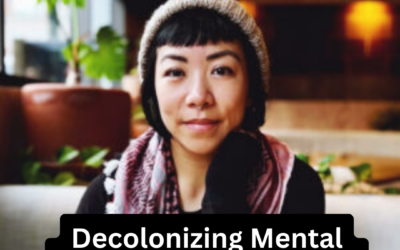Podcast: Play in new window | Download (Duration: 38:27 — 44.0MB)
Subscribe: Apple Podcasts | Spotify | Amazon Music
IN THIS EPISODE:
Meditation And Neuroplasticity Provide a Path To Healing: An Interview With Sarah Peyton
Show Notes
Patty Olwell interviews Sarah Peyton, author of Your Resonant Self: Guided Meditations & Exercises to Engage Your Brain’s Capacity for Healing on the neuroscience of language and emotions. Their discussion covers Sarah’s background in non-violent communication and her more recent work with the impact of specific interventions and meditations to foster brain plasticity and empathy towards ourselves and others. They explore what kinds of language can we use that lets brains relax and move into a space of fluidity? How does this relate to healing from trauma? What kind of language do we use with ourselves to develop empathy? How do we develop an inner voice of understanding rather than self-criticism?
Timeline
0:00 Intro
1:44 – What drew Sarah Peyton to this work – First non-violent communication (Marshall Rosenberg) Rosenberg weekend – first time hearing that use of language
3:51 – How non-violent communication works like therapy – a place where people listen rather than just try to problem solve – what happens when you use feeling words & how it changes the activity of the amygdala – (Matthew Lieberman)
4:40 – Matthew Lieberman study of facial expressions –when you accurately name the facial expression/emotions you’re seeing, the activity in the amygdala falls by half- people using language differently put Peyton into a space of fluidity (there is always an amygdala response to intense facial expressions)
5:29 – Daniel Siegel – Name it to tame it – Why does this work?
6:02 – What kinds of language do we use that lets brains relax and move into a space of fluidity? How does this relate to healing from trauma? How are brains impacted by trauma? Language as the neurotransmitters of human-ness – Verbal & nonverbal communication between two people
8:45 – Shift of focus from communication to brains – Daniel Siegel’s The Developing Mind, The Neurobiology of We
10:30 – How are we moved & changed by the words we use with one another?
12:00 – Dan Siegel’s contingent communication – how do our words reflect that we actually heard the other person? This quality comes through very subtly even in written communication
14:37 – Study of how Sarah Peyton used words with her children revealed the breaks & chasms between getting business of life done and having a relational connection
15:52 – What kind of language do we use with ourselves? Matthew Lieberman’s work with the default mode network. How do our minds think when there’s nothing else to process? When the brain is not directed towards something in particular, it reverses to default network.
18:07 – What is the automatic voice of our brain and can it be changed?
19:32 – Your Resonant Self: Guided Meditations & Exercises to Engage Your Brain’s Capacity for Healing – Speaking unkindly to yourself – Importance of warmth in language – Trauma impacts the default network – experiences of being alone create default networks that are trying to help us – How do we turn towards voice of understanding rather than self-critical voice?
22:31 – How to be precise with language: To be precise with what the feeling tone is. To be precise with what the deep longing is: survival, thriving, peace, room to grow, capacity to have your own timing, etc. Precision with what the timing of the trauma is – that the trauma is no longer happening – By using the past tense, the brain is using precision – What’s so upsetting is in the past and getting acknowledgment
25:01 – People often say yes most often when asked if they’re seeking acknowledgment for what happened in the past. Bonnie Badenoch’s study of Nepalese boy soldiers All boy soldiers had the same experience but the boys who went home to environments where they were received with welcome had much lower rates of PTSD than environment where they were excluded. It’s not what happens during the trauma, it’s how we’re received afterwards – > We heal in relationship
29:05 – People who have at least 6 months of therapy are less likely to have to deal with addiction
29:46 – Daniel Siegel – When we view the brain as a brain rather than a collection of our faults then it gives birth to self-compassion in capacity to look at brain outside of itself
30:51 – Meaning of “People Make Sense” – Difficult events where we have not been met with resonance afterwards create and experience of not having any entry to connect with self
33:52 – Playing video games and smoking cigarettes both turn off the default network most completely. Interpersonal neurobiology takes us into a new world
37:00 – Peyton’s final thoughts: Therapists are already the poets of the human soul – hold the language part of the relationship with the conscious precision that’s possible begins to awaken a new excitement about the revelations that come with every sentence of expression and dialogue
RESOURCES:
Additional resources for this episode:
- Marshall B. Rosenberg: Nonviolent Communication:A Language of Life
- Sarah Peyton: Your Resonant Self: Guided Meditations and Exercises to Engage Your Brain’s Capacity for Healing
- Bonnie Badenoch: Being a Brain-Wise Therapist: A Practical Guide to Interpersonal Neurobiology (Norton Series on Interpersonal Neurobiology)
- Dan Siegel:The Developing Mind, Second Edition: How Relationships and the Brain Interact to Shape Who We Are
- These and other resources have been collected for you on our Resources page!














